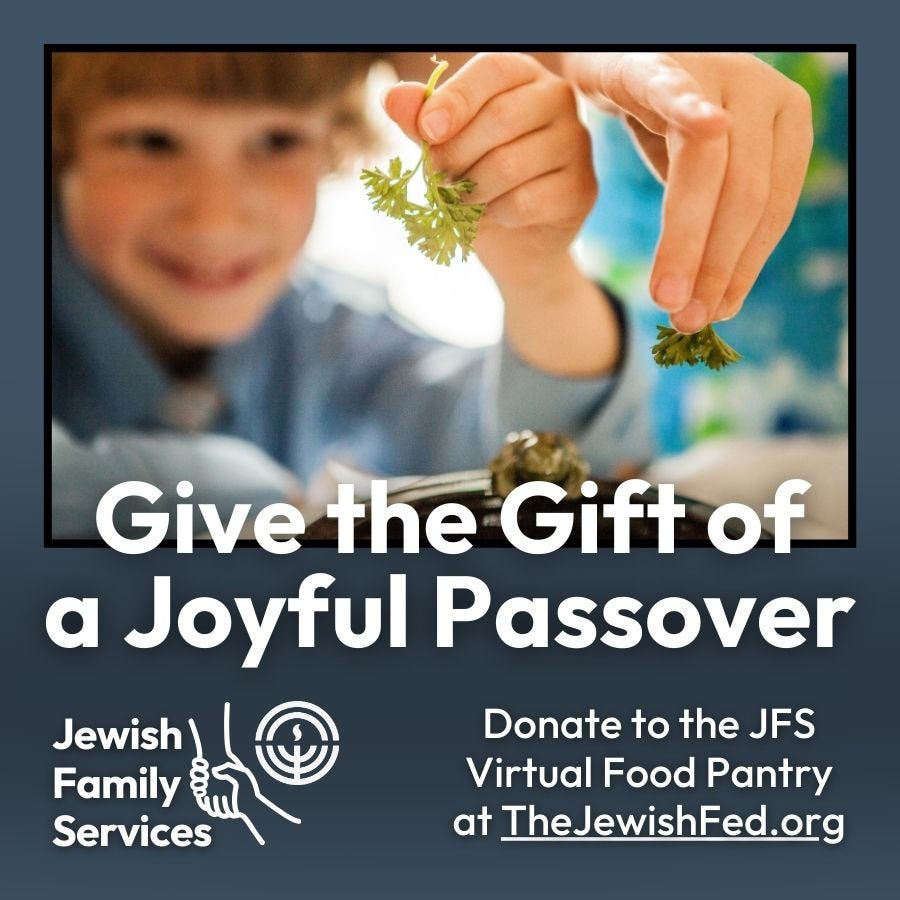Passover conjures up many memories. It was a time for our extended family to get together and celebrate the holiday with only the rowdiness that a family get-together can conjure. Due to the number of people, we had to sit at separate tables, and as one of the youngest at this gathering, I was seated at the kids’ table.
It was fun to see my cousins, aunts, and uncles and to celebrate in only the way a family can. We would sing the songs and read the Haggadah. Of course, the meal was great since we would have food not served the rest of the year. And while I missed my challah, I knew that it would be back before I knew it.
What I always found interesting was that we used the best dishes, and nothing was held back. On one hand, we were commemorating our release from slavery and eating unleavened bread, bitter herbs, etc., to remember our times as slaves in Egypt, yet we were acting like kings, simply reminiscing about our past. It would only be later that I would learn that Jewish law dictates that specifically on this holiday, and no other, are we to show the bountiful blessings in our appreciation of Hashem’s kindness and love of His people.
Along with “showing off our wealth,” there is an interesting statement at the beginning of the Seder in which we state, “This (matza) is the bread of affliction that our forefathers ate in Egypt; all who are hungry come and join us.” It is our proclamation that we want those who are in need to join us and sharing Hashem’s good bounty.
Recently, I received a call from someone in distress. Admittedly, I received the wrong signal and started to give ideas as to how to remedy the problem. The person stopped me and said, “All I want is a virtual hug and to know that someone cares about me. I immediately responded with, “Are you ready? I’m sending you one now.” After that call, I had a new insight as to the statement of “All who are hungry.” It is not only to have them join us and share in our bounty, rather it is to demonstrate that we care about them. They are part of our extended family, and we want to show our love. So, we invite them to join our family as we relive the exodus from Egypt.
In relation to that message, our Rabbis created the ma’ot chitim (money for food) program that is unique to Passover. Passover provisions were always more expensive, and the Rabbis wanted to ensure that everyone had enough money to purchase the matza, wine, and other foods for the Seder. It was their “virtual hug.”
This year, we are having our annual Passover fundraiser for our Jewish Family Services Virtual Food Pantry. Our goal is to raise $8,000. Your donation will allow us to help those in need for the Passover season and beyond. Our Pantry serves our Jewish brethren in the Michiana area. So please donate generously and involve your friends in this important campaign and, as a community, give a big virtual hug to our clients. Thank you, in advance, for your participation.
Have a chag kasher v’sameach—a happy and healthy Passover.
Rabbi Fred Nebel
Director of Jewish Family Services



